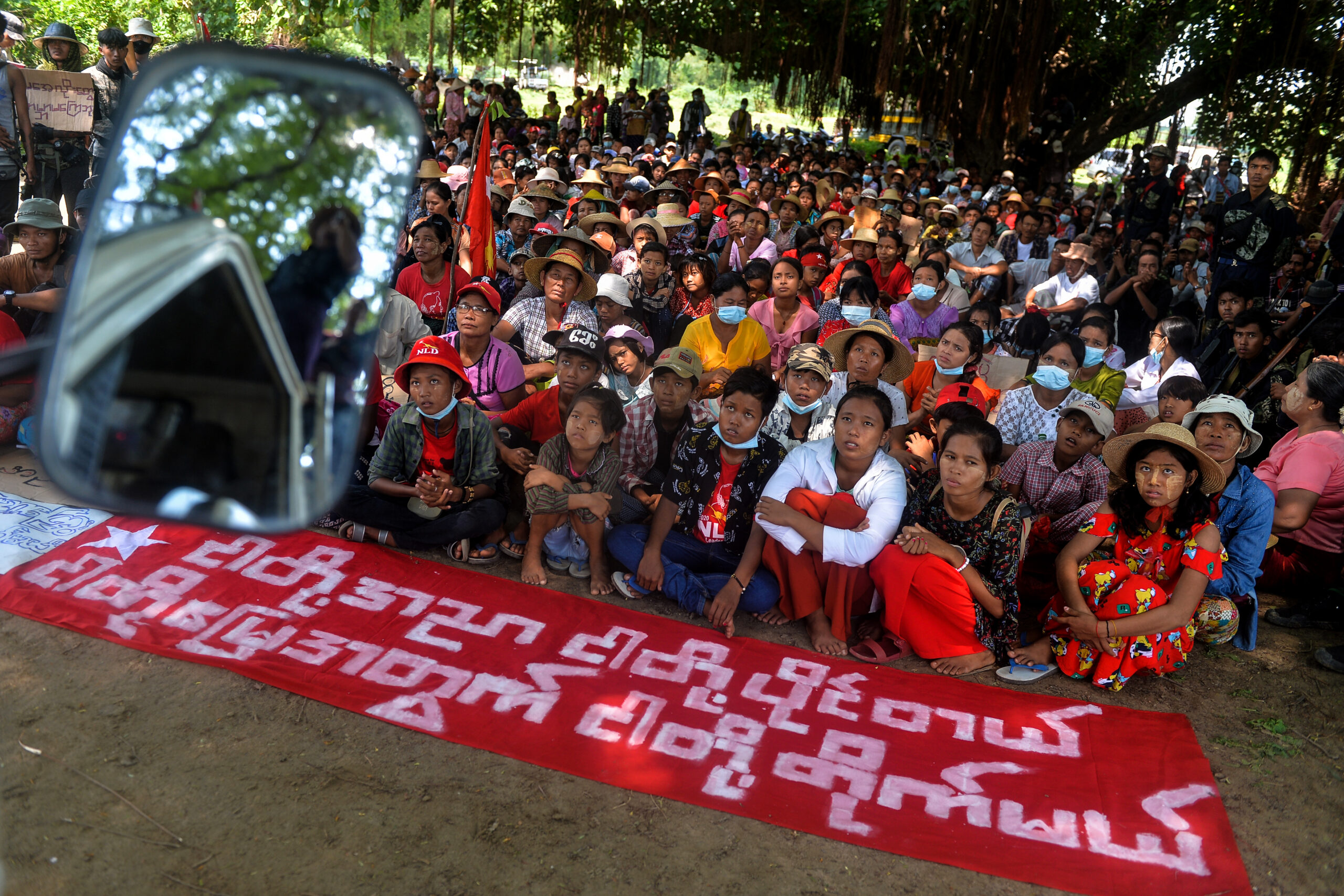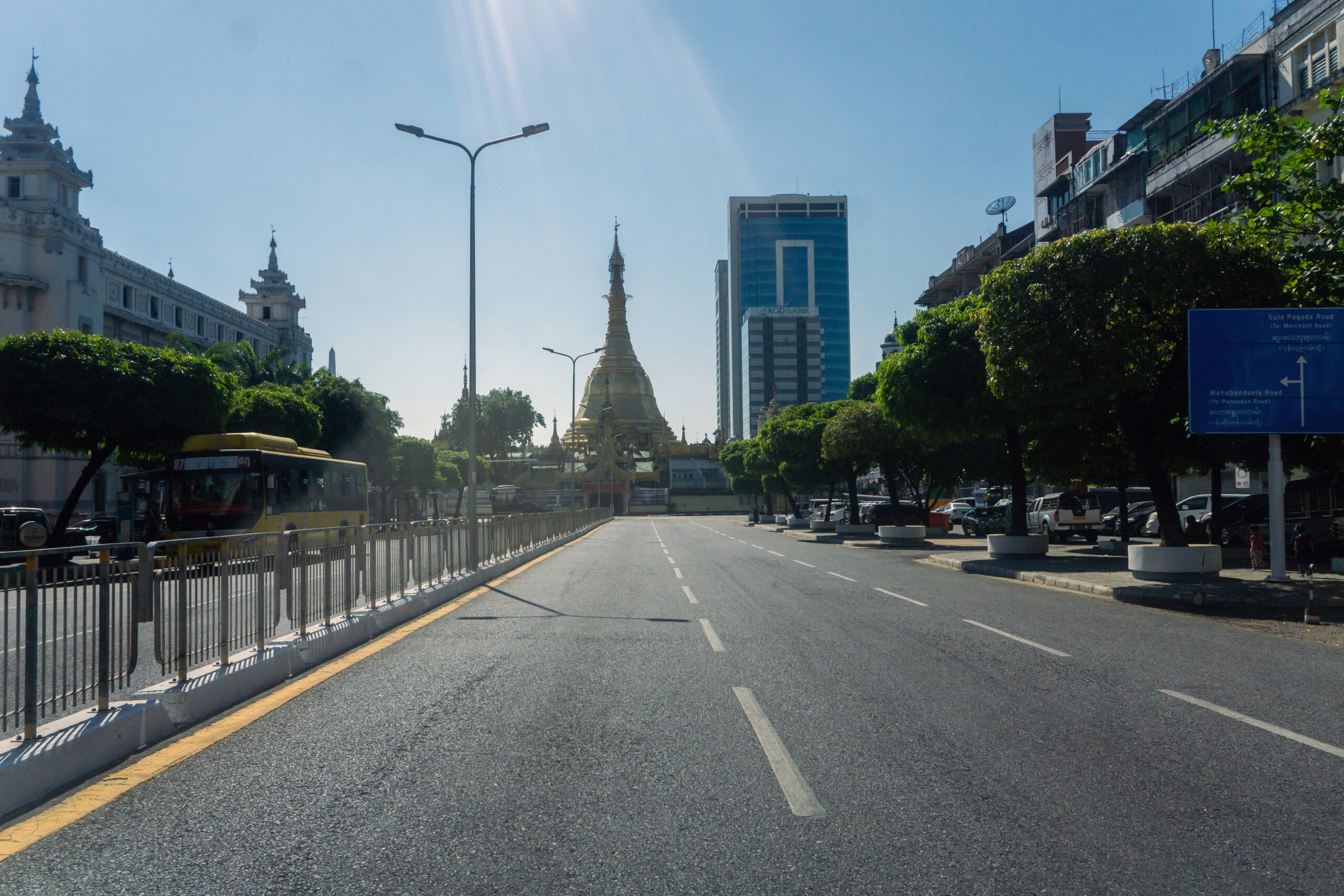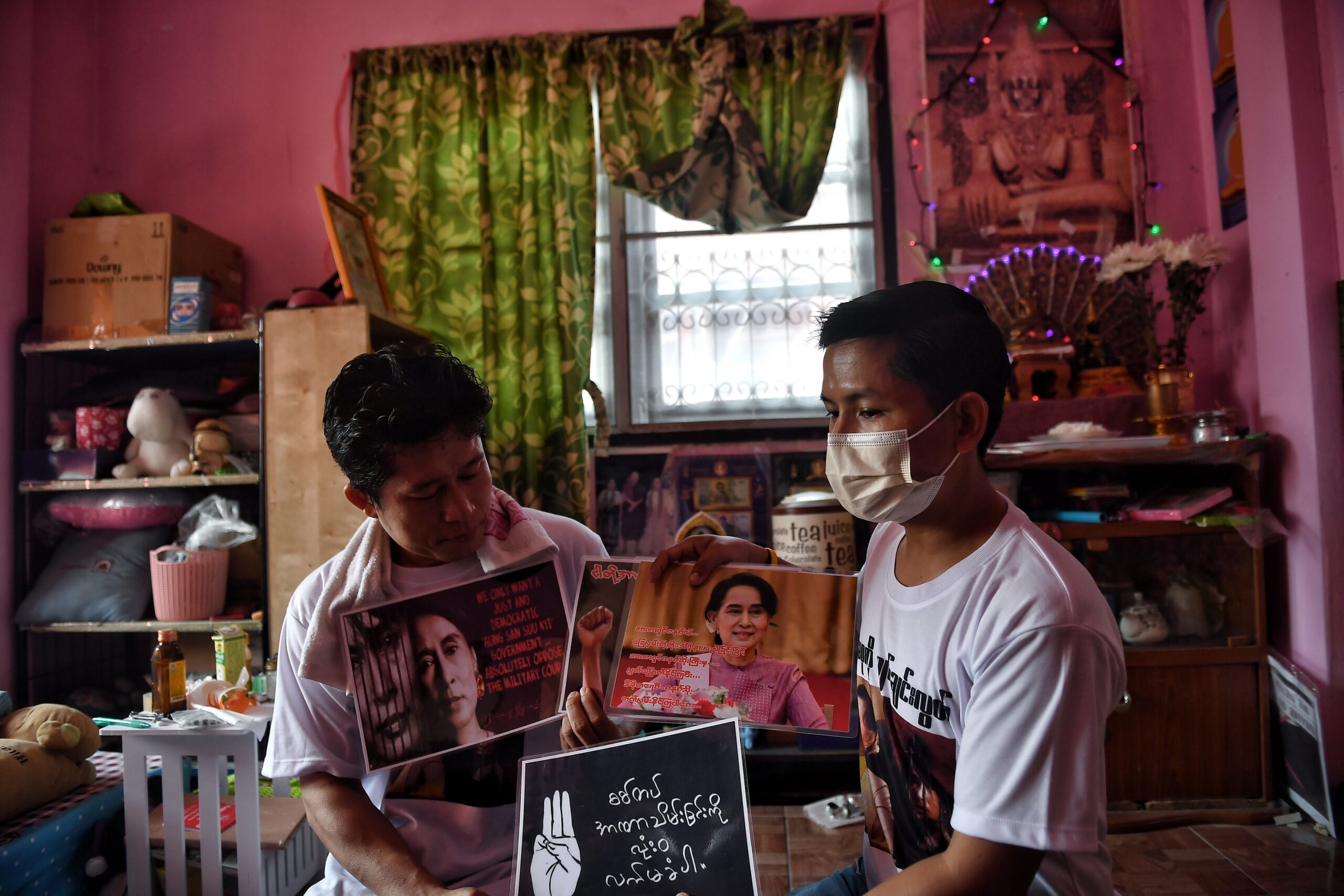After a year of working her way around South Asia, *Chaw Su decided to return to Yangon. “I was missing home so much, but people kept telling me – even my own mother – why would you come back? Are you crazy? Everyone else is trying to get out.”
Chaw is one of a small number of Burmese citizens who have chosen to return to Myanmar since the military takeover in February 2021.
The coup shook the country to its foundations. A decade of relative stability and economic growth were thrown into abrupt reverse. Protests erupted around the nation, the economy all but collapsed, and the already conflict torn country became engulfed in a broader civil war against the military junta with no end in sight.
At least 2,500 civilians have been killed with a further 16,200 arbitrarily detained by security forces, according to the Assistance Association for Political Prisoners. Reports of torture and sexual violence are widespread.
Along with the withdrawal of many high-profile companies such as Telenor and British American Tobacco, large swathes of Myanmar’s upper class and foreign workers fled the country. According to a Gallup poll conducted in February, almost a quarter of residents (24%) said they would still leave if they could.
But for some who made the decision to leave over the last two years, it’s time to come home. With a devastated economy, and real security threats, returning to post-coup Myanmar is a high risk course of action. And most Myanmar nationals who fled do not want to return under these circumstances.
Based on multiple interviews with the Globe, many share a sense of moral duty to stick with Myanmar. Others say that in spite of all the suffering and challenges that come with living in the country at this moment, they could not push themselves to leave.

‘I can survive here.’
Before the coup, Chaw Su was a successful entrepreneur in Yangon. She organised boat parties, silent discos, as well as events and excursions. But the coup ground her business to a halt.
In February, along with tens of thousands of other Burmese citizens, Chaw took to the streets in protest.
“This whole period felt like a bad dream,” she said from her home in downtown Yangon. In April, her then-boyfriend convinced her that the security risks were too great. They decided to leave the country for two to three months, which turned to 14.
She travelled across India, Nepal and Sri Lanka, studying under a Russian DJ in Goa and eventually carved out a professional career. But life outside Myanmar was not easy.
“People assumed I had a better life outside the country and things were easier for me, but it’s not true. I didn’t feel safe, I got thinner, I hardly made any money, and as a female Burmese DJ, people didn’t take me seriously. I also had to deal with a lot of sexual harassment,” she said.
Chaw returned in July to a much-changed Myanmar. Rampant inflation, a visible increase in poverty and a civil war that continues to grind on. But despite making a fraction of her previous earnings and a dramatically shrunken friend circle, she does not regret her decision.
“I was so depressed and scared when I first got back but I eventually changed my mindset. Even though I don’t have much money, I have stability and a roof over my head…I can survive here.”
There are still thousands, if not millions, of people in Myanmar who, if given the chance, would leave in a heartbeat.
For those who don’t have the financial freedom or connections to move, working abroad as a Myanmar national can be incredibly challenging, Chaw said. Many people often end up working menial labour jobs and can face exploitation. These risks were enough for Chaw to return to Myanmar.
“To be honest, it was little things as well,” Chaw said. “I missed being able to speak to random strangers on the street – and I missed Burmese food!”

For others, leaving Myanmar was out of the question.
Born in Yangon, but educated in The UK and Australia, *Adam made the decision to remain in Myanmar after the coup despite having the means to move elsewhere and he has no plans to leave.
“I can leave any time I wish, but the main reason I choose to stay is that this is still my country no matter who’s in charge.”
When the military seized power in 2021, bringing to an end Myanmar’s decade long experiment with democracy, the reaction from the overwhelming majority of the population was swift, near-unanimous, and loud with outrage.
Last year, the junta managed to quash defiant groups in urban centres like Yangon and Mandalay, but armed resistance have sprung up in response. And while big cities like Yangon present a veneer of normality, discontent and hatred for the military simmers beneath the surface.
Adam is an outlier. He’s seemingly indifferent to the coup and he stayed away from the protests. “No one is going to put food on my table at the end of the day,” he said with cynicism in his voice. “People here don’t understand democracy. They don’t deserve it.”
But for those on the frontlines of the war for Myanmar’s freedom, this view couldn’t be further from the truth.
Before the coup, Kyaw Kyaw was heavily involved in affecting positive change in the country. Today, he contributes at a grassroots food distribution network called Food Not Bombs, but also creates politically charged music. Although his work can put him in danger while living in the country, he’s determined as ever to help the people of his homeland.
“The coup was a wake-up call for everyone, they are unified like never before,” he said. “I still want to fight, as long as I’m useful here, I will stay.”
He acknowledges that his activities have placed him at much higher risk than the average citizen. “If I keep going, the worst thing that can happen is I can be arrested or killed. I don’t want to die, but I’m prepared for this.”

“Myanmar chose me”
Since the coup, the junta has increased attacks on ethnic groups in border territories, displacing more than a million people and pushing tens of thousands to flee to neighbouring countries.
Rampant inflation has increased the price of basic commodities such as rice, cooking oil and fuel, while wages have stagnated. The pandemic has also doubled the numbers of people living below the poverty line to a staggering 40%.
But it’s not just Myanmar nationals who are determined to help.
*Lukas, from central Europe, had been working in Myanmar for close to a decade and when the military took over he never considered leaving the country. “I’ve been here too long already, it was never an option for me to leave,” he said.
Prior to the coup, Lukas worked in tourism, but when the industry imploded, he pivoted to working at a non profit that aims to help those living in poverty.
“The poorest people have been hit the hardest, and I can do so much more to help them here than I ever could back home.” For many foreign nationals like Lukas, their relationship with Myanmar goes far deeper than their businesses.
“I always say, I didn’t choose Myanmar, Myanmar chose me. I arrived here in 2012 and enjoyed all the benefits when times were good, so when things turn ugly to say I’m leaving now, bye-bye! No, I have far too much of a connection to the people to abandon them now.”
Many other foreigners have expressed a similar emotional attachment to the country.
For international school teachers like *David and *Sarah, leaving Myanmar made sense in March 2021, but they returned in April 2022. Living in Myanmar today comes with a litany of challenges, such as a spike in crime, curfews, and increased military presence, yet the married couple plans to stay put.
“I’ve always been happy in Myanmar,” Sarah said. “There are challenges, but also so much to feel grateful for. We want to help our community.”
”We care a lot about Myanmar, and if you care about a place, it feels wrong to be there only during the good times,” David said. “Sometimes, just being here feels like a subtle act of resistance.”
For some Myanmar residents who look back on when they left, feelings of regret often emerge.
Thiri, who is from southern Myanmar, and Tom, who is Anglo-Burmese, felt torn about leaving Myanmar for the UK last year.
Tom, who had a thriving business before the coup, has returned to restart his company on a much smaller scale and has been forced to diversify. He still sees opportunities in Myanmar, but like his partner Thiri feels an emotional attachment to the country.
“I was happy here and love the country a lot so I wasn’t ready to leave. You feel a bit guilty to be here in the good times but when it’s bad to turn your back, we didn’t want to do that.”
As the current refugee crisis continues today, traffic is mostly flowing out of the country. But new returnees could illustrate a sign of fresh optimism.
“I always wanted to come back,” Thiri said. “And being outside of Myanmar made me want to come back even more. Whatever positive experience I had outside the country, I knew that everyone back home would not have that, and it didn’t feel fair. There was a lot of guilt. I want to go through this with my friends and family – together.”
*Pseudonyms have been used to protect sources from reprisals.


